These Photos Will Change How You Look at Airport Towers
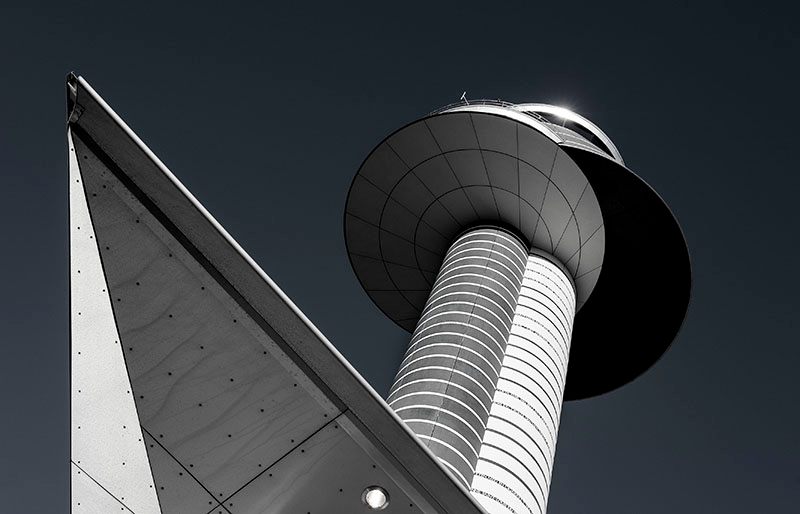 Stockholm-Arlanda Airport, Sweden. (All Photos: © Caroyln J. Russo)
Stockholm-Arlanda Airport, Sweden. (All Photos: © Caroyln J. Russo)
The earliest known air traffic controller was Archie League, in 1929, in St. Louis. He used a wheelbarrow as his control tower, where he kept his essentials–some food, an umbrella for the summer months, and a pair of flags to indicate “GO” or “HOLD” to the pilots.
More than 80 years later, air traffic controllers in the U.S. manage the flights of more than two million passengers per day. It is regularly listed as one of the most stressful jobs in the world, and their workplace, the airport control tower, is the center of activity.
Photographer Carolyn Russo’s new book, Art of the Airport Tower, shows the significance of these structures in a new light: the stark architectural beauty of the Fort Worth Alliance Tower in Dallas, Texas, or the curved tower in the United Arab Emirates, the only control tower in the world in the form of a crescent.
Russo travelled to 23 different countries to photograph 85 towers, both historic and contemporary. The book will be released in October 2015, and will coincide with a Smithsonian exhibition of the same name. Below, a selection of striking photos from the book.
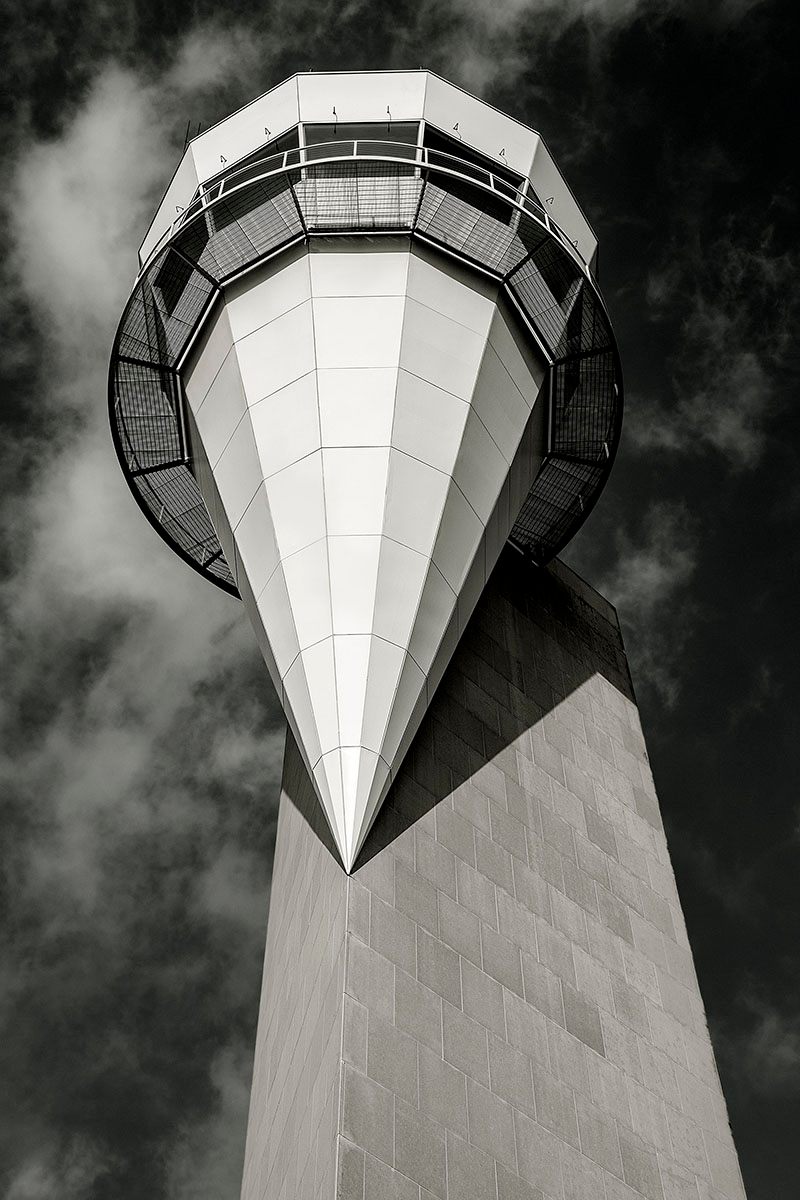 Fort Worth Alliance Airport, Texas, United States.
Fort Worth Alliance Airport, Texas, United States.
What prompted you to start photographing airport towers?
I had been working on a project photographing aircraft in the National Air and Space Museum’s collection from an abstract point of view for a book and exhibition project titled In Plane View: Abstractions of Flight. On a trip to New York I caught a view of the LaGuardia air traffic control tower through my airplane window and it looked like Swiss cheese with its creamy concrete texture and dark circular windows. As I researched other airport towers, I became intrigued with the diverse architecture and realized a new approach to portray them other than aviation artifacts.
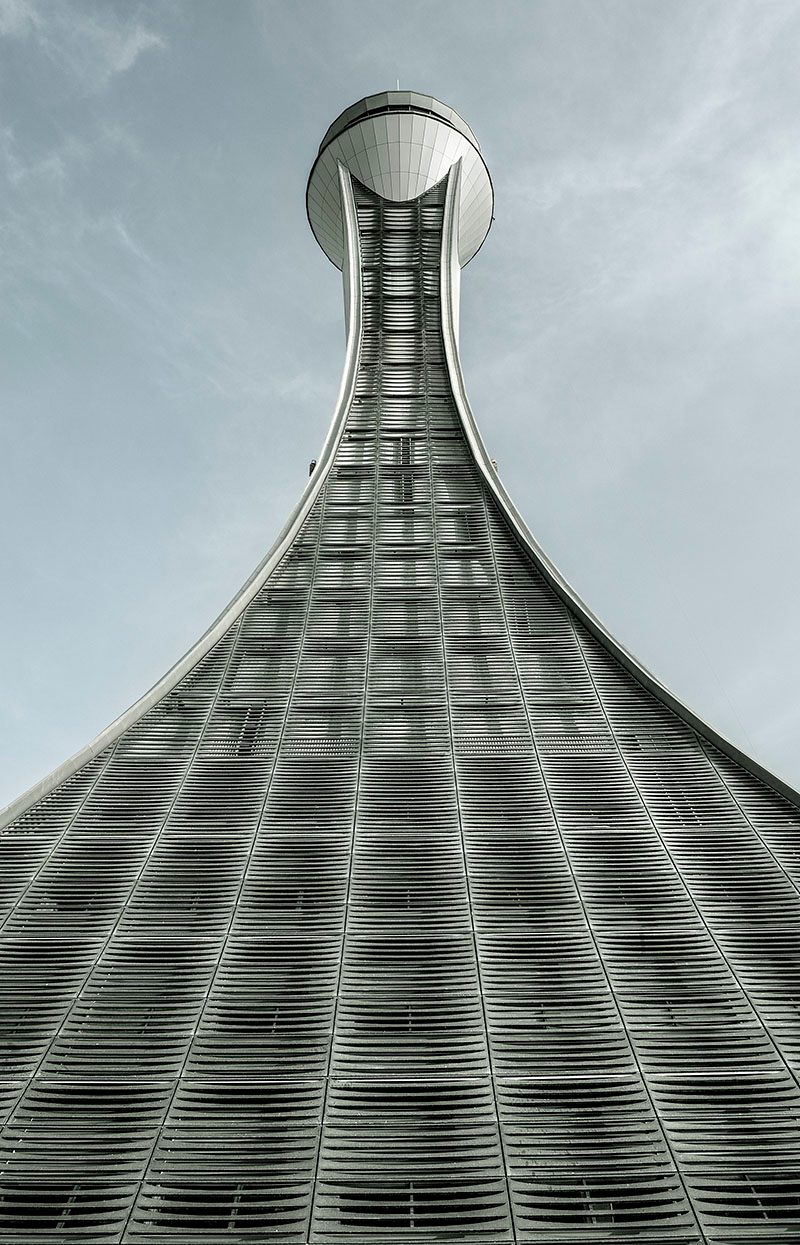 Abu Dhabi International Airport, United Arab Emirates.
Abu Dhabi International Airport, United Arab Emirates.
How has the design of airport towers evolved over the years?
Some of the older towers were boxy and made of bricks like the Hobart tower in Tasmania, or were minimal steel structures like the Kingman tower in Arizona. The more elaborate historical towers such as the Grand Central Air Terminal in California incorporated Art Deco themes or Neoclassical designs as seen in United Kingdom’s Croydon Airport tower. The short answer is that most of the older towers were built for function. The new towers are all over the road in terms of architecture styles and are designed for both form and function. And of course the towers have evolved in terms of height to see the full views runways that now accommodate the largest aircraft.
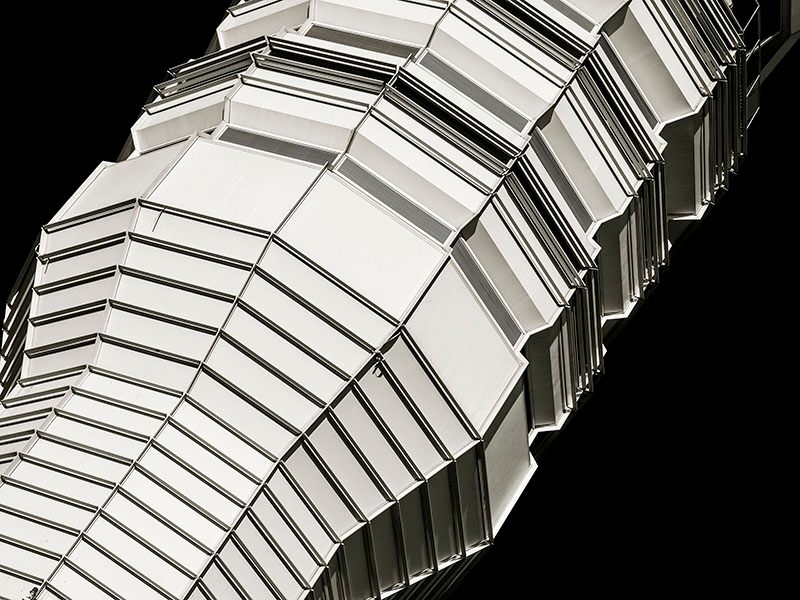 Ronald Reagan Washington National Airport, Virginia, United States.
Ronald Reagan Washington National Airport, Virginia, United States.
Given the logistics involved in shooting at airports as well as the height of the towers, what was the most difficult vantage point you had to shoot from?
Well, sometimes it was a challenge finding the proper vantage point. Looking up at the really tall towers gave me a “neck ache” when I was photographing from the base of the tower. I think the most difficult vantage points were shooting from the airside of the airports next to the active runways. My locations were sometimes dictated by safety and where the airport authority personnel could position me from moving aircraft.
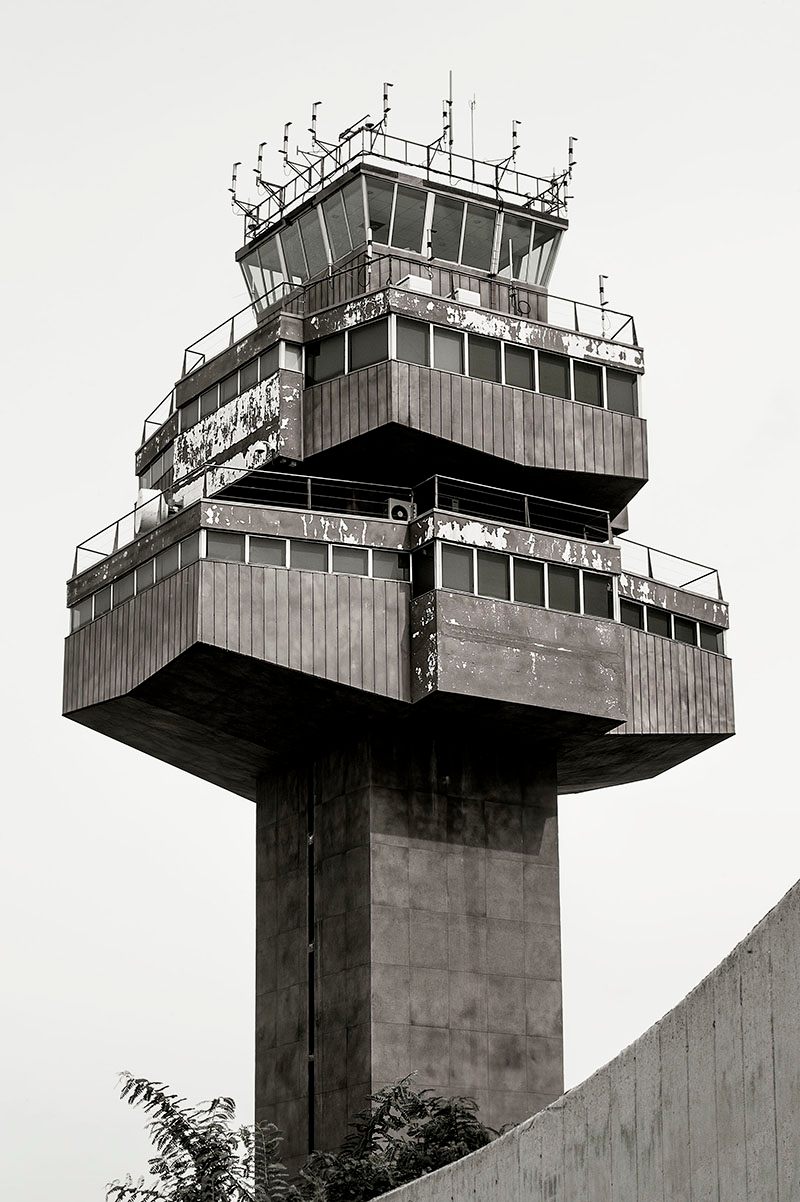 Barcelona El-Prat Airport, Spain.
Barcelona El-Prat Airport, Spain.
Air traffic control towers often go unnoticed. Why do you think this is?
I’m not sure that airport towers go unnoticed, but maybe some become just another element in the airport landscape background. However, towers such as ones in the United Arab Emirates scream for attention. I’m hopeful that Art of the Airport Tower brings an even greater awareness to these significant and also beautiful structures. They are all significant to their respective airports and communities.
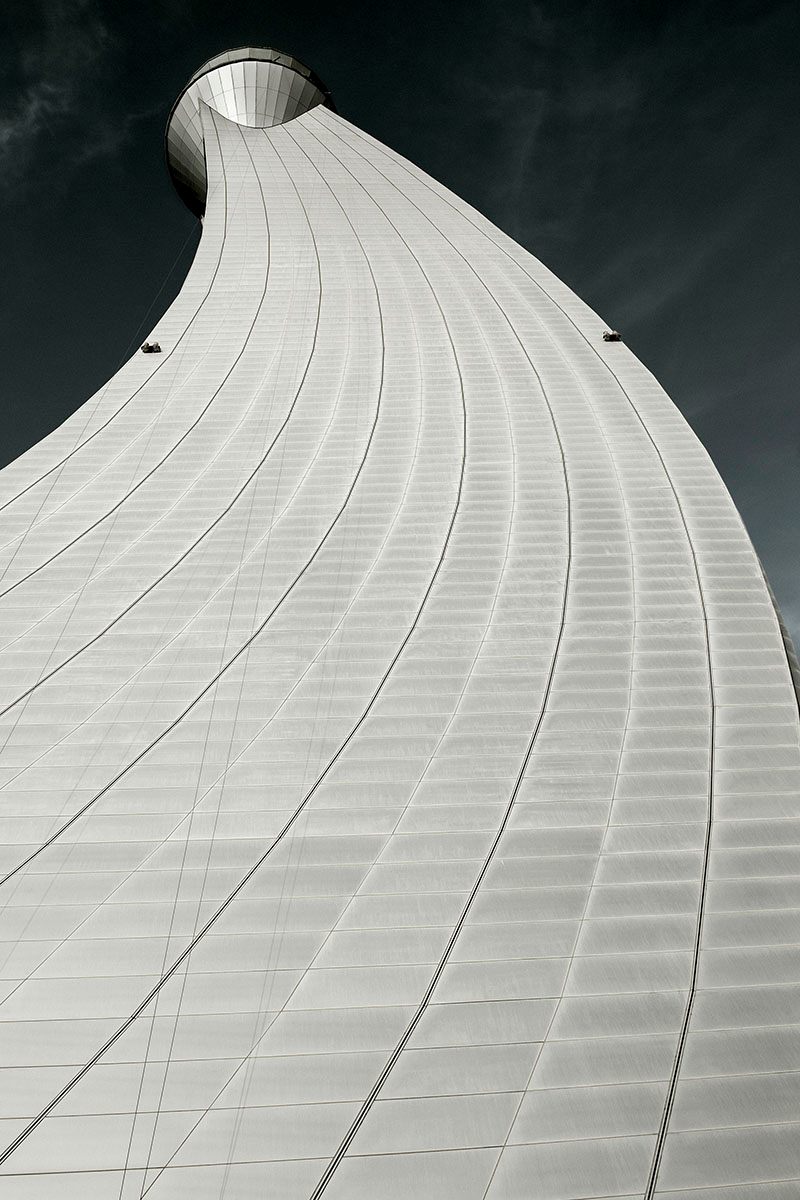 United Arab Emirates.
United Arab Emirates.
What do air traffic controllers think of the towers?
I met several air traffic control operators and the tower is a beloved office environment. The operators are grateful for their magnificent views and find their contributions to aviation safety a purposeful and rewarding career. Art of the Airport Tower offers them an even greater perspective of their already unique work place.
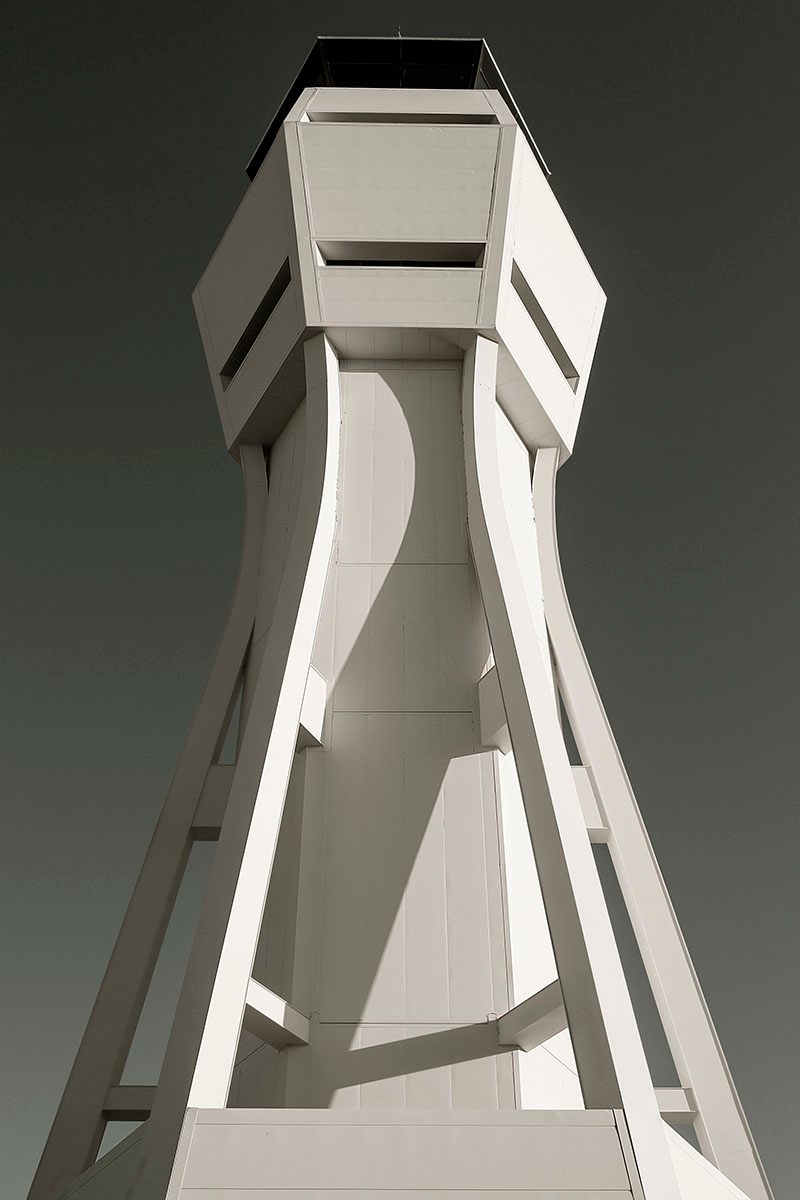 Edwards Air Force Base, California, United States.
Edwards Air Force Base, California, United States.
Is there a tower you weren’t able to photograph but would like to–your ‘dream airport tower’?
There are dozens of airport towers that I was unable to include due to time, budget, or access. Those include the Zimbabwe, Mumbai, and Beijing airport towers.
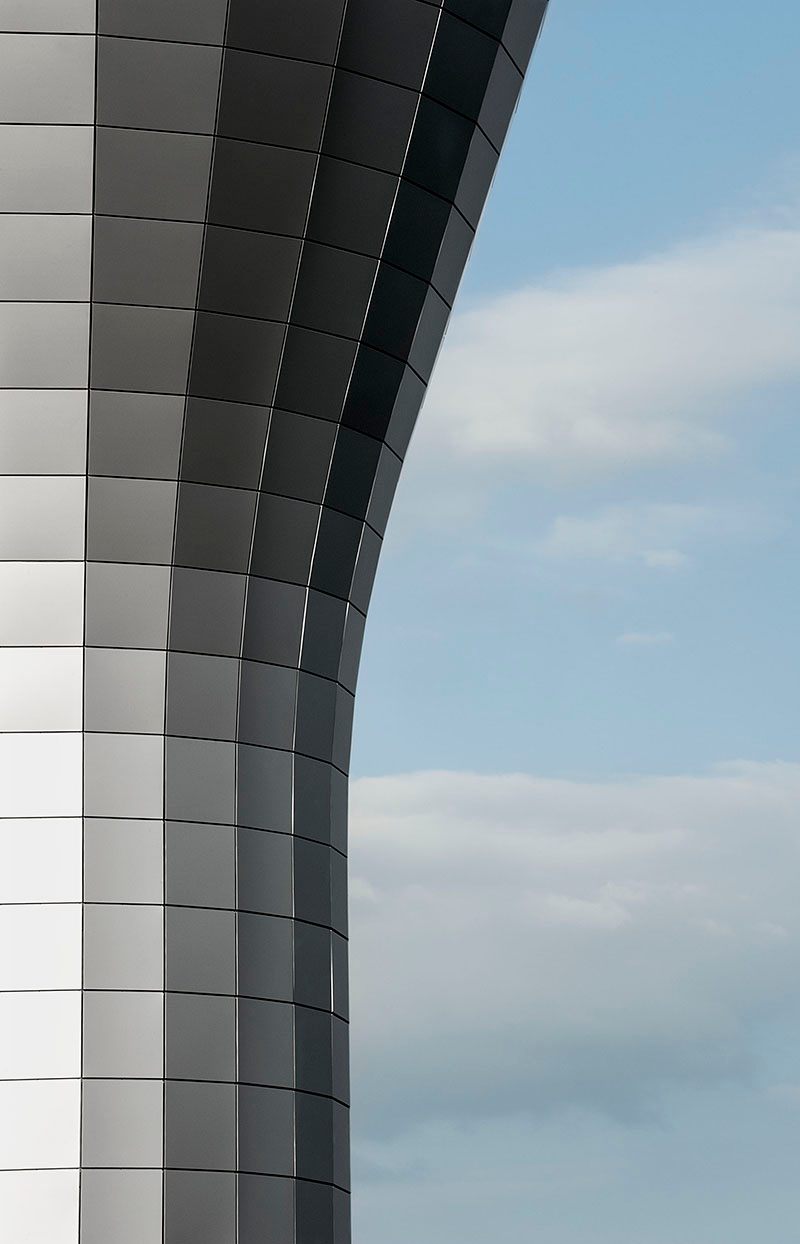 Birmingham Airport, UK.
Birmingham Airport, UK.
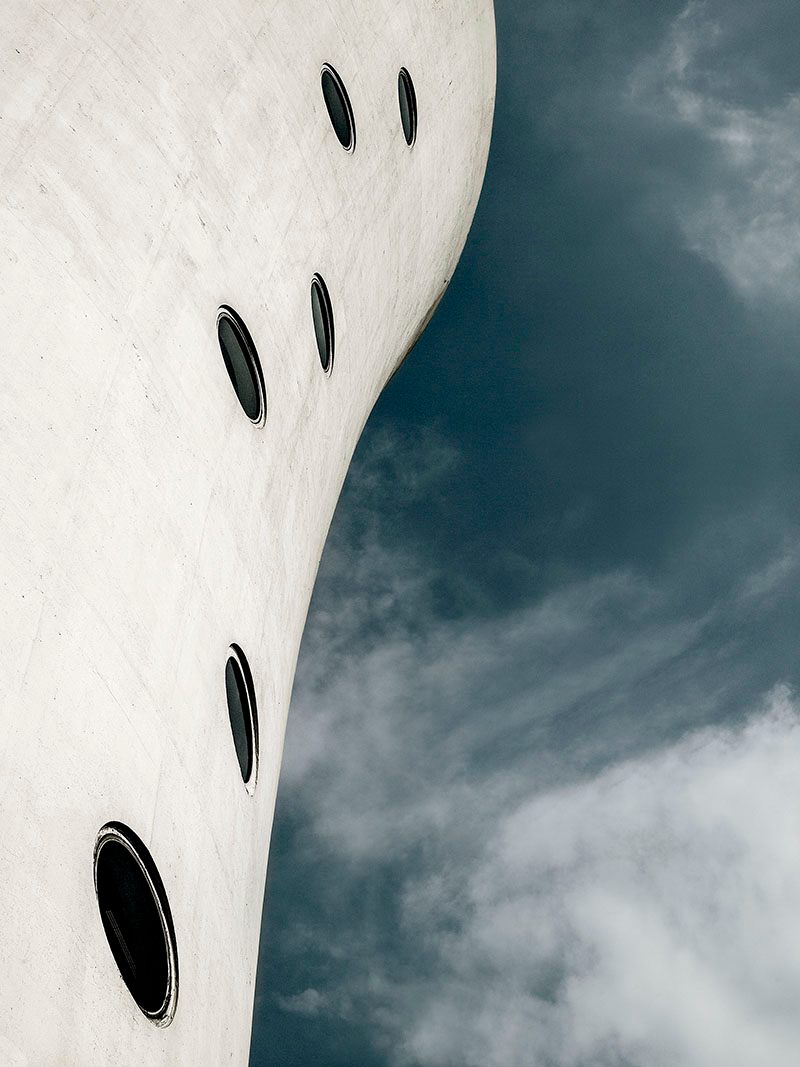 LaGuardia Airport, New York, United States.
LaGuardia Airport, New York, United States.
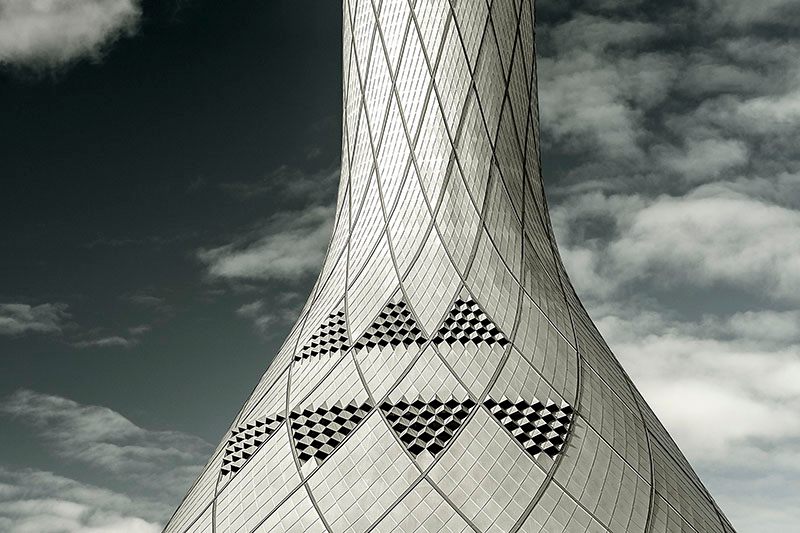 Edinburgh Airport, Scotland, United Kingdom.
Edinburgh Airport, Scotland, United Kingdom.
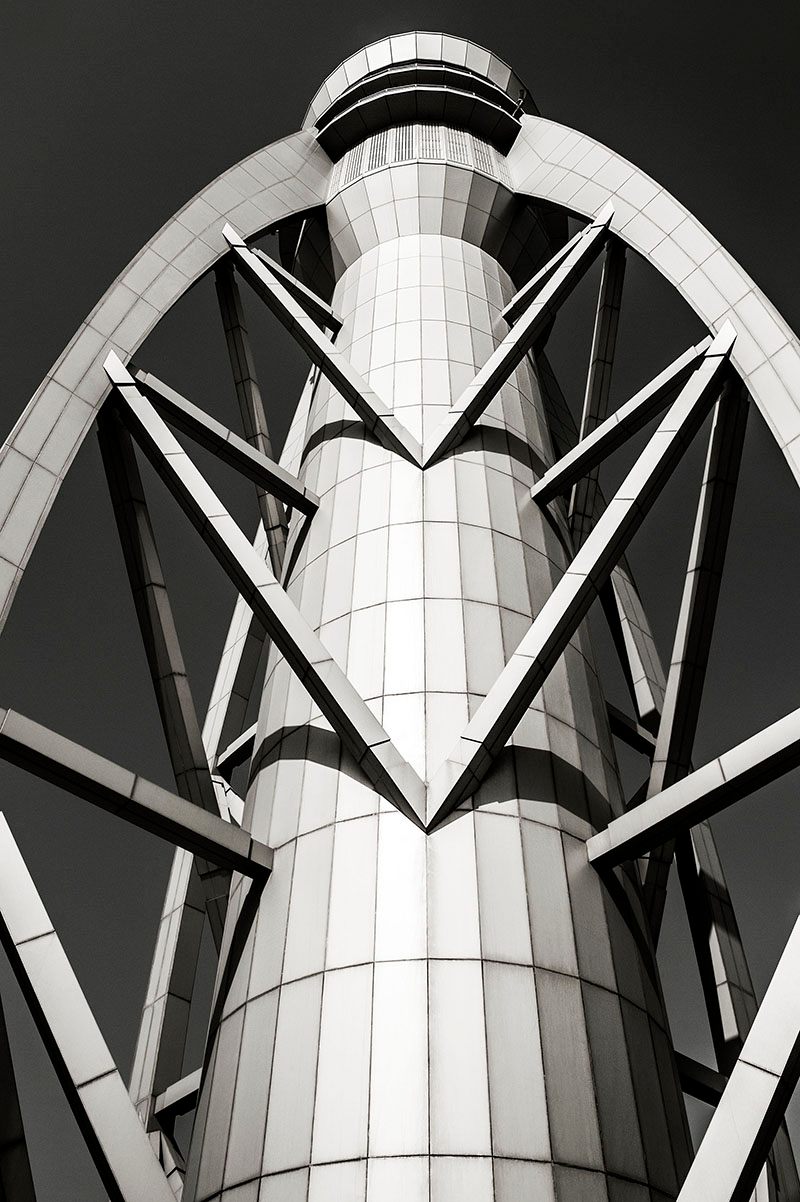 Dubai International Airport, United Arab Emirates.
Dubai International Airport, United Arab Emirates.
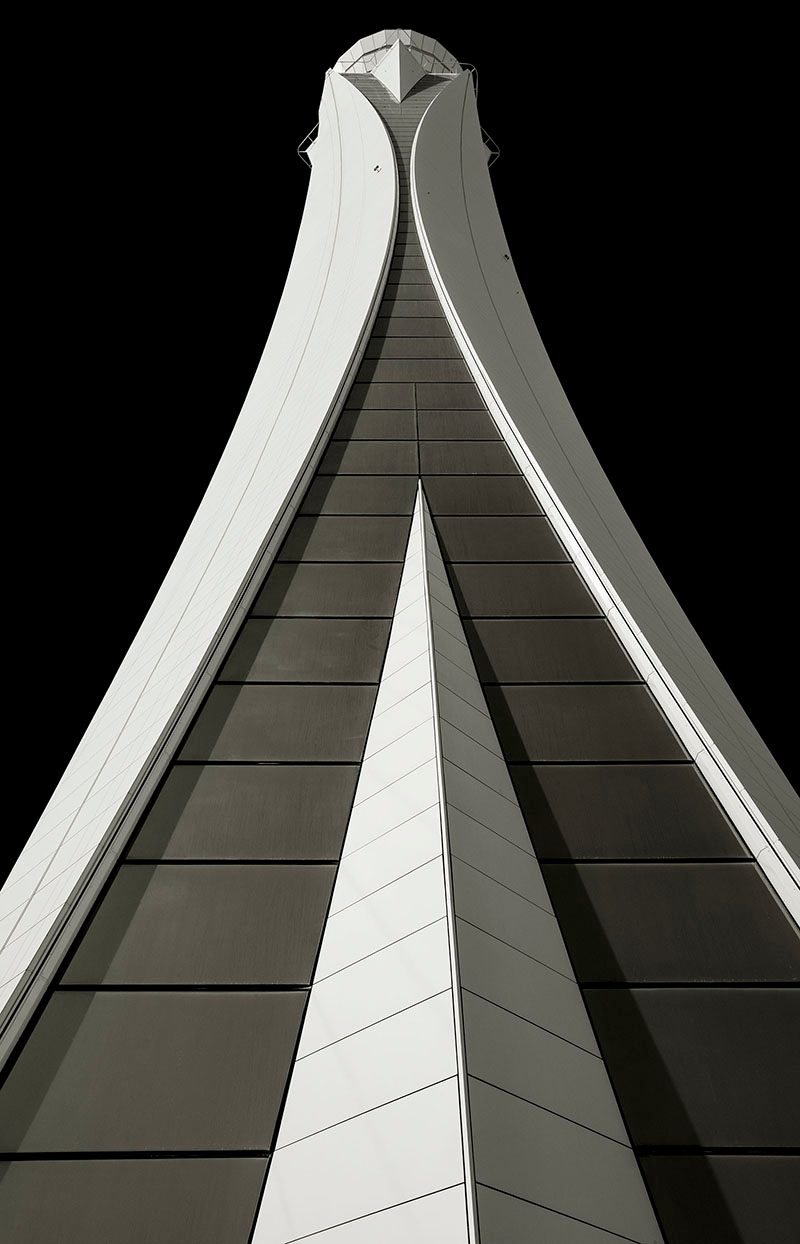 Dubai World Central–Al Maktoum International Airport, United Arab Emirates.
Dubai World Central–Al Maktoum International Airport, United Arab Emirates.
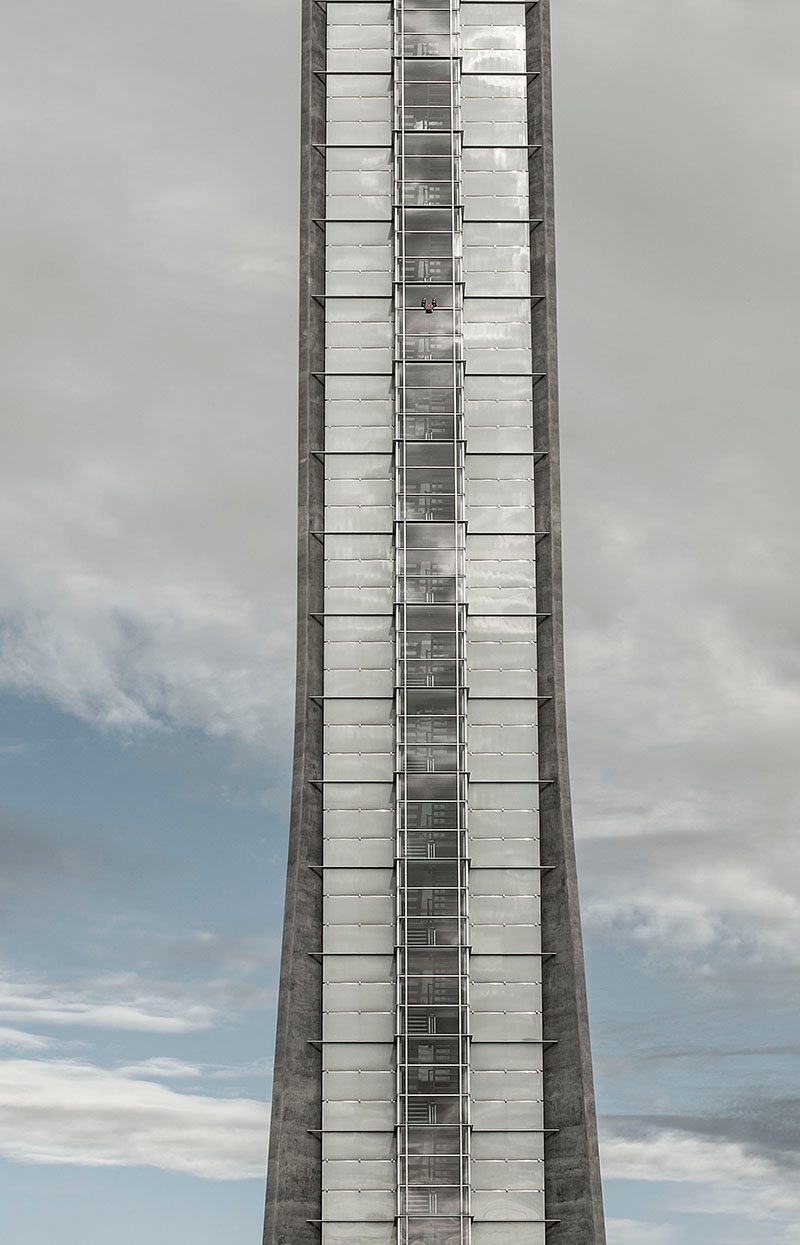 Oslo Airport, Norway.
Oslo Airport, Norway.
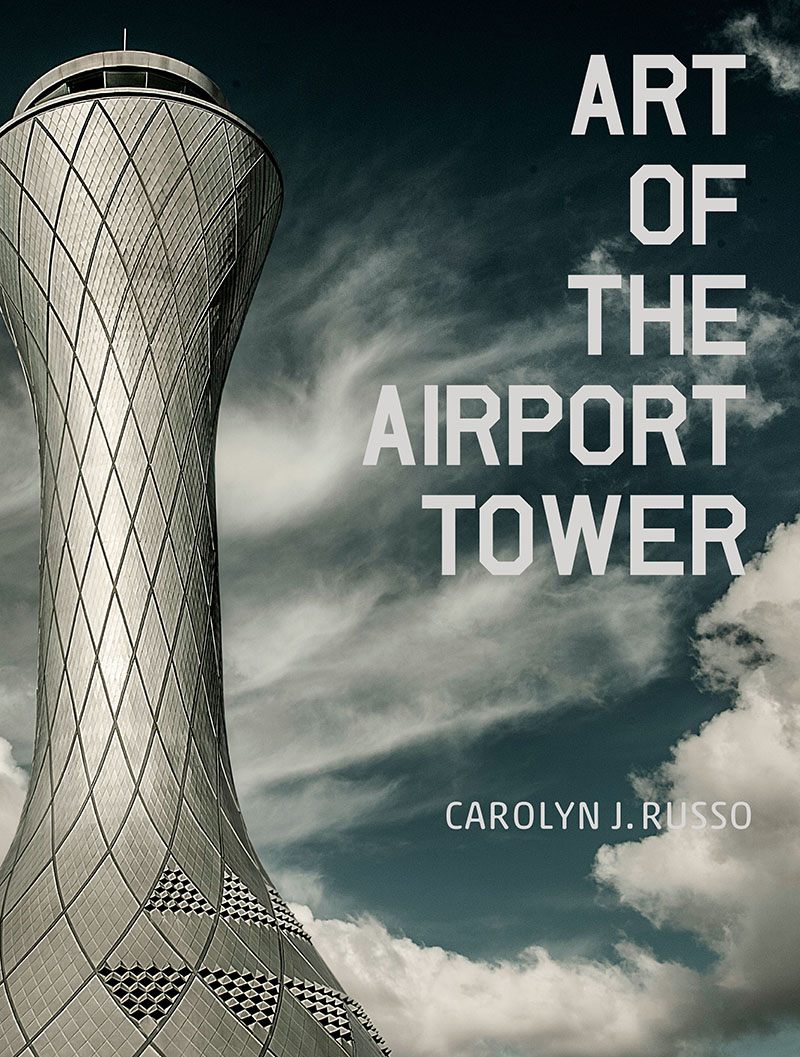 Carolyn J. Russo’s book, Art of the Airport Tower, will be available in October.
Carolyn J. Russo’s book, Art of the Airport Tower, will be available in October.


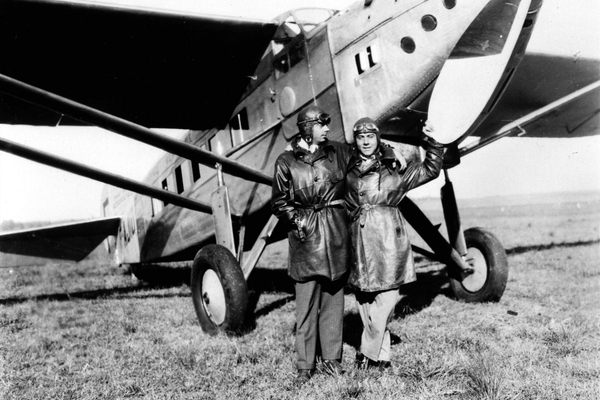





Follow us on Twitter to get the latest on the world's hidden wonders.
Like us on Facebook to get the latest on the world's hidden wonders.
Follow us on Twitter Like us on Facebook